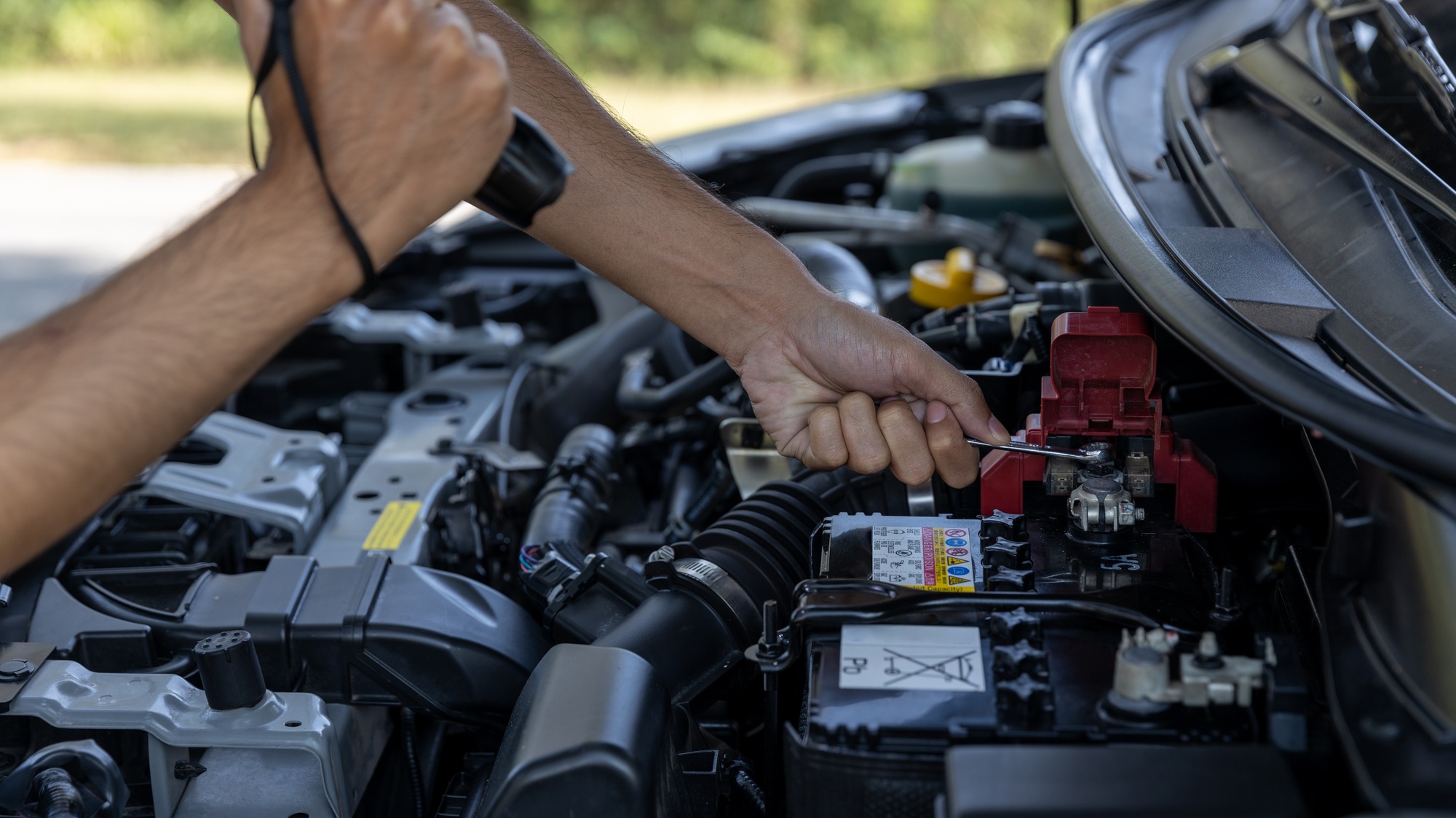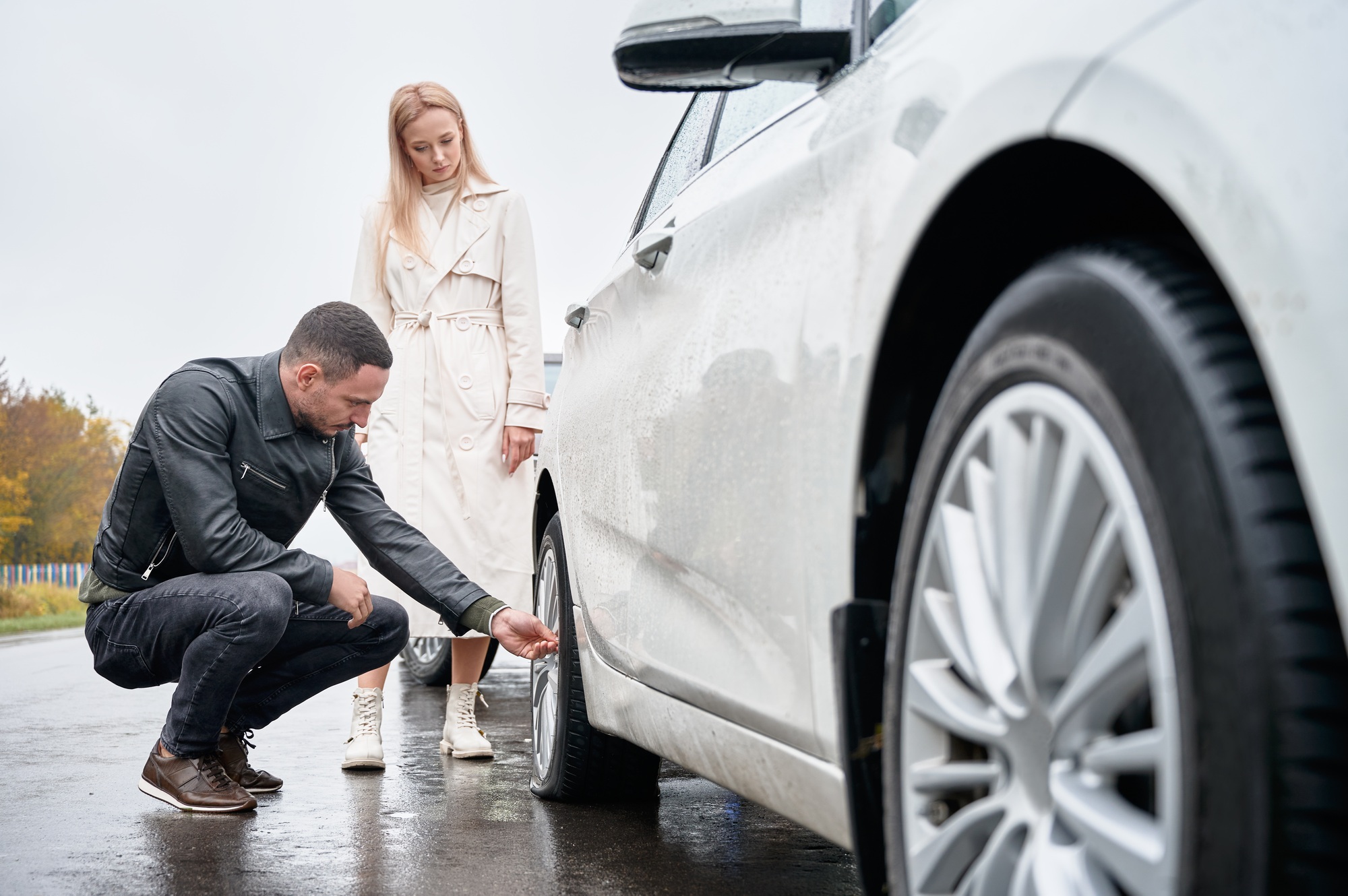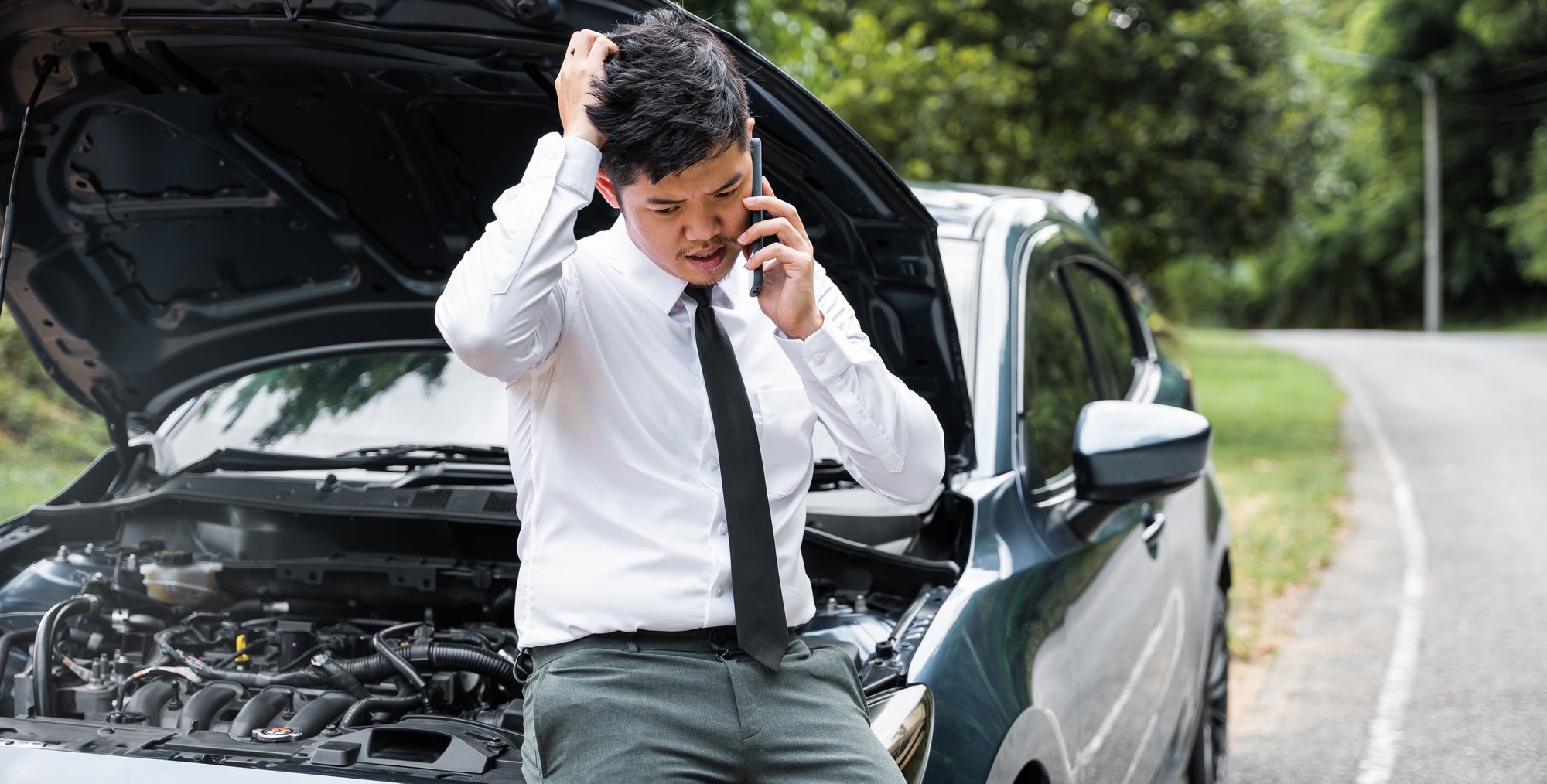Car breakdowns can disrupt your plans, lead to unexpected expenses, and even put you in dangerous situations. Understanding the Common Car Breakdown Causes and How to Avoid Them ensures you stay safe and minimize inconveniences. By recognizing potential issues early and maintaining your vehicle properly, you can prevent most breakdowns and enjoy a smoother driving experience. This article provides a comprehensive guide to the most frequent car failures and practical steps to avoid them. We’ll also highlight why services like Crossroads Helpline can be lifesavers during emergencies.
1. Battery Failure: The Silent Saboteur

Cause: Battery issues are among the leading causes of breakdowns, especially during extreme temperatures. A dead or weak battery often results from leaving lights on, using electronic devices without running the engine, or an old battery nearing its end.
How to Avoid:
- Regularly check your battery’s charge and clean the terminals.
- Replace your battery every 3-5 years or as recommended by the manufacturer.
- Avoid short trips that prevent the battery from fully charging.
- Crossroads Helpline offers swift battery jumpstart services to get you back on the road.
Signs of a Failing Battery:
- Dim headlights
- Difficulty starting the engine
- Warning light on the dashboard
2. Flat or Damaged Tires: The Roadblock

Cause: Punctures, under-inflated tires, and wear and tear contribute to sudden tire failures. Poor road conditions and debris can also lead to flats.
How to Avoid:
- Check tire pressure regularly and ensure it matches the manufacturer’s recommendations.
- Inspect tires for uneven wear, cracks, or bulges.
- Rotate tires every 5,000-7,000 miles.
- Carry a spare tire and know how to change it.
Crossroads Helpline provides quick tire repair and replacement services, ensuring minimal downtime.
Pro Tip: Keep a tire inflator and pressure gauge in your car for emergencies.
3. Engine Overheating: A Preventable Disaster
Cause: Engine overheating often results from low coolant levels, a faulty thermostat, or a malfunctioning radiator. Ignoring warning signs can lead to costly engine damage.
How to Avoid:
- Regularly check coolant levels and top them up as needed.
- Inspect the radiator and thermostat for leaks or damage.
- Ensure the cooling fan is functioning correctly.
Signs of Overheating:
- Temperature gauge in the red zone
- Steam coming from the hood
- Unusual smells inside the car
If your engine overheats, Crossroads Helpline can dispatch a technician to assess and address the issue promptly.
4. Alternator Failure: Power Shortage
Cause: The alternator charges your battery and powers electrical systems. A failing alternator can drain the battery and cause your car to stall.
How to Avoid:
- Pay attention to dashboard warning lights.
- Listen for unusual noises, such as grinding or whining.
- Test your alternator regularly, especially if you notice dim lights or electrical issues.
Quick Tip: Replace belts and pulleys as part of regular maintenance to avoid alternator issues.
5. Fuel System Problems: Keeping the Engine Fed
Cause: Clogged fuel filters, failing fuel pumps, or contaminated fuel can lead to engine stalling or poor performance.
How to Avoid:
- Use high-quality fuel from reputable stations.
- Replace fuel filters as recommended.
- Avoid running the tank low, which can damage the fuel pump.
Emergency Solution: Crossroads Helpline offers fuel delivery services if you run out of gas unexpectedly.
6. Starter Motor Failure: No Ignition

Cause: The starter motor engages the engine when you turn the key. A failing starter can leave you stranded without warning.
How to Avoid:
- Listen for clicking sounds when starting the car—this indicates starter issues.
- Ensure the battery and alternator are in good condition, as electrical problems can affect the starter.
- Get periodic inspections to catch early signs of wear.
Note: If your car won’t start, Crossroads Helpline provides quick diagnostic and repair services on-site.
7. Electrical System Issues: Beyond the Battery
Cause: Modern vehicles rely heavily on electrical systems. Faulty wiring, blown fuses, or malfunctioning sensors can lead to breakdowns.
How to Avoid:
- Regularly inspect electrical connections and fuses.
- Address warning lights on your dashboard promptly.
- Avoid overloading your vehicle’s electrical system with aftermarket devices.
Professional Help: Crossroads Helpline can diagnose and fix electrical issues efficiently.
8. Transmission Failure: A Costly Affair
Cause: Transmission problems often stem from low fluid levels, worn-out components, or poor maintenance. Ignoring early signs can lead to complete failure.
How to Avoid:
- Check transmission fluid levels regularly and change them as recommended.
- Avoid aggressive driving and abrupt gear shifts.
- Listen for unusual noises or slipping gears.
Early Intervention: Regular servicing prevents costly repairs and keeps your transmission in top shape.
Common Breakdown Causes and Preventive Measures
| Cause | Symptoms | Preventive Measures |
|---|---|---|
| Battery Failure | Dim lights, slow engine crank | Check charge, clean terminals, replace every 3-5 years |
| Flat Tires | Low pressure, visible damage | Inspect regularly, maintain pressure, rotate tires |
| Engine Overheating | High temperature gauge, steam | Check coolant levels, inspect radiator, monitor fan |
| Alternator Failure | Electrical issues, warning lights | Test alternator, replace belts, check connections |
| Fuel System Problems | Poor performance, engine stalling | Use quality fuel, replace filters, avoid low fuel levels |
| Starter Motor Issues | Clicking sound, no start | Inspect battery, address electrical issues, regular checks |
| Electrical Problems | Warning lights, malfunctioning devices | Inspect wiring, avoid overloading, check fuses |
| Transmission Failure | Slipping gears, strange noises | Change fluids, avoid aggressive driving, regular service |
Conclusion
Understanding the Common Car Breakdown Causes and How to Avoid Them is essential for every vehicle owner. Regular maintenance, early detection of issues, and staying prepared for emergencies can significantly reduce breakdown risks. By relying on trusted services like Crossroads Helpline, you can ensure quick and reliable assistance whenever you face unexpected troubles on the road. Stay informed, proactive, and safe to enjoy a hassle-free driving experience.

